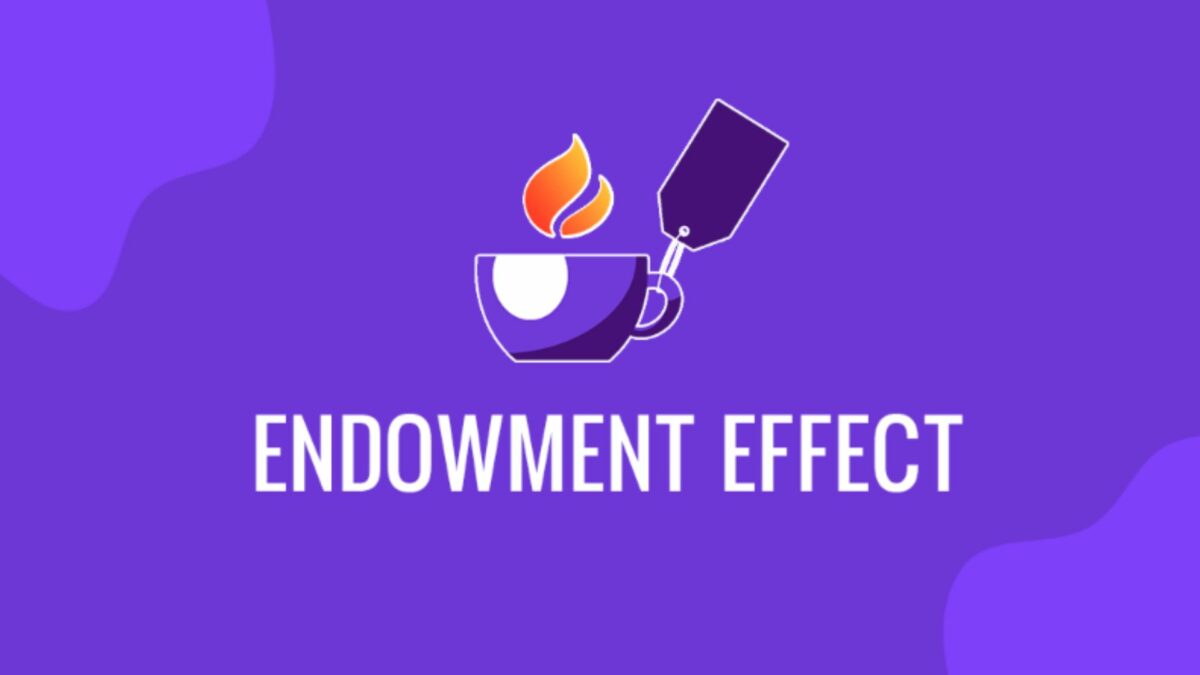“We want it, we need it. Must have the precious. They stole it from us.”
–Gollum
Imagine that you have to sell the house you grew up in. For those of you who have had to do this, I’m sure just thinking about it brings back a wash of memories.
Your house is your home. How many times have you heard that maxim? The words have different connotations. The word home has emotional connections to it. A home has memories, meanings, and the commitment of your heart. The word house, however, doesn’t have those emotional ties. It’s a roof over your head, a place to sleep at night, and where you currently live, but a house is, at its core, wood, brick, and concrete.
How does the difference in Endowment Effect you and your finances?

Have you ever experienced or heard of a house that was priced way above what it should have been priced? Was it because the owner had lived there for 25 years, raised the kids, grew up in the neighborhood, and had a lifetime of memories associated with the house? If this sounds familiar, that’s because of a common phenomenon called the endowment effect.
In any given transaction, there are two selling numbers: the amount the buyer is willing to pay (WTP) and the amount that the seller is willing to accept (WTA). If the WTP is greater than the WTA, there should be a sale. In general, one person’s WTA and WTP should be the same for the same item; namely, if there was a rock on the ground that was worth $1, then you should be willing to pay $1 for the rock and accept $1 if someone paid you for the rock.
However, this isn’t how humans work. We are much more likely to place a higher value on something simply because we own it rather than if we didn’t own it. So, for that same rock, if it was YOUR rock, you’d want more for the rock (it’s YOUR rock, after all!) than you’d be willing to pay for the rock that you didn’t own. This has been proven by Princeton professor and Nobel Price winner Daniel Kahneman in experiments involving random objects such as pens and mugs.
It’s also been shown in the real estate market when sellers have an emotional attachment to their homes and price their houses too highly. The sellers also don’t want to feel like they left money on the table and have received as high of an offer as possible.
What type of seller isn’t subjected to this emotional attachment? In general, a bank is not going to have such emotional attachment. Banks acquire houses as a result of foreclosures, and they usually don’t want to have houses on their books. Banks make money by taking in deposits and loaning that money back out, not by buying and selling houses. The longer a house remains on the book, the more a bank has to spend to maintain the house and the fewer loans it can make. As a result, foreclosures should be more appropriately priced, and a buyer has a better chance of getting a good deal. Another instance where a seller wouldn’t have as large of an emotional attachment is when a seller must sell in distress – a lost job, a job move, or perhaps a family situation means that the owner needs to get out of the house as soon as possible. The urgency of the situation creates stress, meaning that the limbic system, your monkey brain, is more likely to take over, which allows a buyer to get a better deal.
If you’re a seller, how do you make the endowment effect work for you? Don’t sell to investors. Real estate listings that identify investors in the write-up are simply asking for lowball offers. Why? The investor is not planning on living in the house and doesn’t get an emotional attachment. The investor is thinking in terms of cap rates and return on investment, not in terms of couches and mancaves. Instead, you want a potential buyer to see your house as their home. You want the buyer to imagine cooking dinners, sitting around in the living room, and building that man cave. Make the buyer feel like this home is already his, and he will come up with all of the rationalization and justification necessary to meet your price – a price that an investor is unlikely to meet.
If you’re a home seller, how do you make the endowment effect work for you? Don’t sell to investors.
If you’re selling a home, get your potential buyer emotional about it, but if you’re buying a home, the closer to a robot your seller is, the better.
Would you rather buy a foreclosure or buy from someone other than a bank? Do you think you’re profiting from someone else’s misery by buying a foreclosure? Join in the discussion below!
Author Profile
- John Davis is a nationally recognized expert on credit reporting, credit scoring, and identity theft. He has written four books about his expertise in the field and has been featured extensively in numerous media outlets such as The Wall Street Journal, The Washington Post, CNN, CBS News, CNBC, Fox Business, and many more. With over 20 years of experience helping consumers understand their credit and identity protection rights, John is passionate about empowering people to take control of their finances. He works with financial institutions to develop consumer-friendly policies that promote financial literacy and responsible borrowing habits.
Latest entries
 Low Income GrantsSeptember 25, 2023How to Get a Free Government Phone: A Step-by-Step Guide
Low Income GrantsSeptember 25, 2023How to Get a Free Government Phone: A Step-by-Step Guide Low Income GrantsSeptember 25, 2023Dental Charities That Help With Dental Costs
Low Income GrantsSeptember 25, 2023Dental Charities That Help With Dental Costs Low Income GrantsSeptember 25, 2023Low-Cost Hearing Aids for Seniors: A Comprehensive Guide
Low Income GrantsSeptember 25, 2023Low-Cost Hearing Aids for Seniors: A Comprehensive Guide Low Income GrantsSeptember 25, 2023Second Chance Apartments that Accept Evictions: A Comprehensive Guide
Low Income GrantsSeptember 25, 2023Second Chance Apartments that Accept Evictions: A Comprehensive Guide

